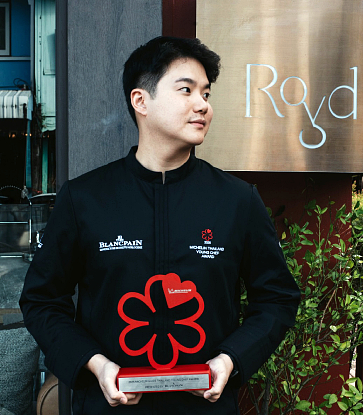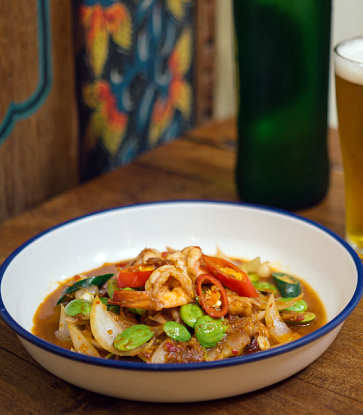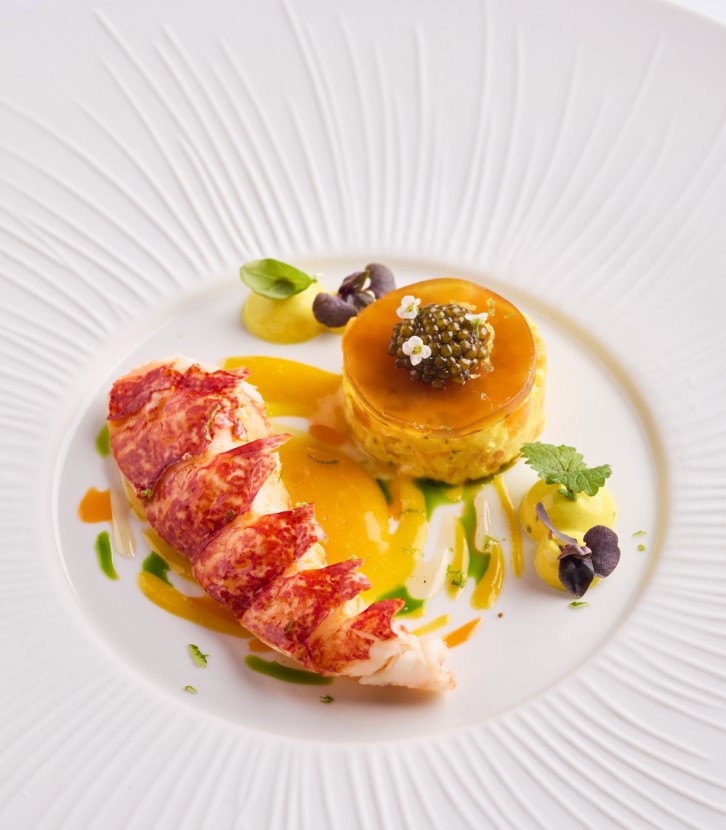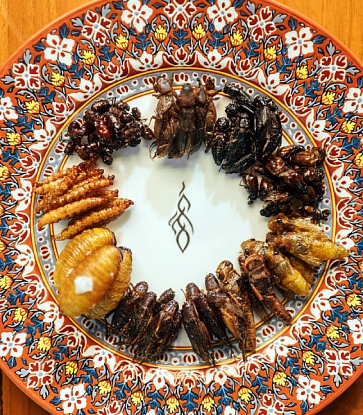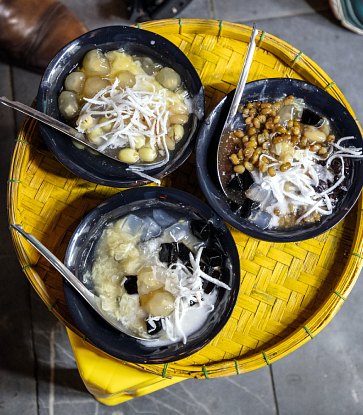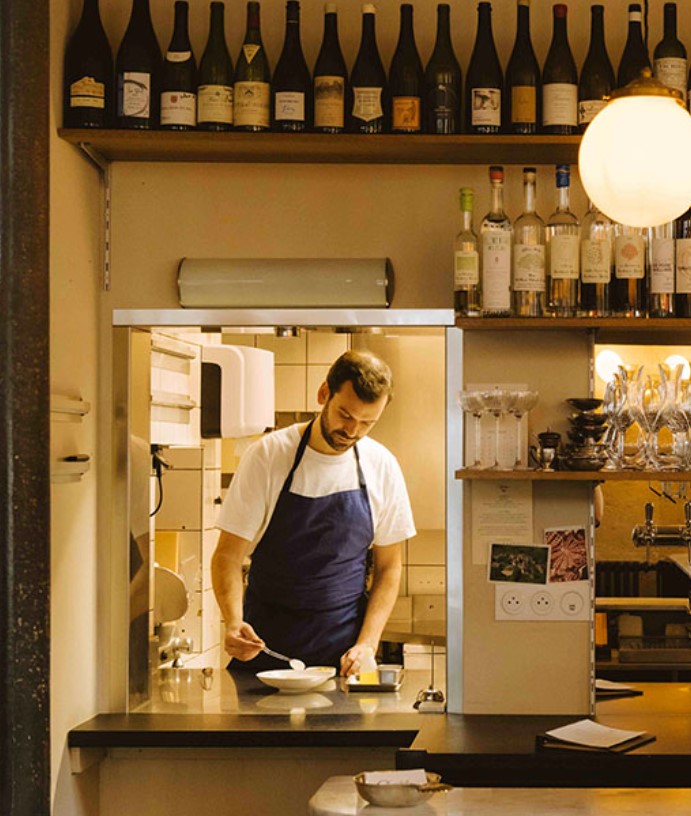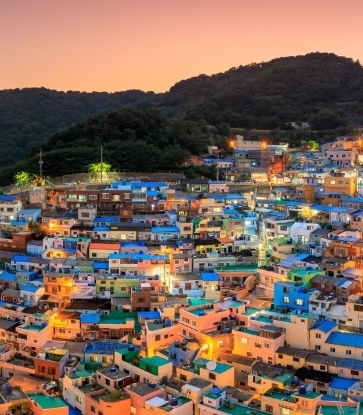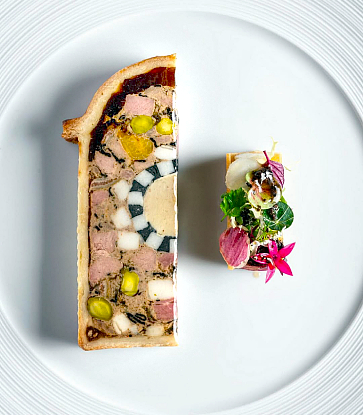Not long ago he was yelling down the phone at suppliers from a restaurant kitchen in Cambridgeshire. Now, he’s working the fields in Pranburi to supply Michelin-awarded establishments in Bangkok, often on the receiving end of impossible requests to make plants grow overnight.
And he couldn’t be happier.

Photo credit: Patrick Jacobs
He may have the scars and blisters to show for it, but this English chef-turned-hotelier-turned-supplier isn’t your typical farmer. Telling him you can’t grow something in Thailand is like waving a red rag to a buffalo, and he’ll do his best to prove you wrong – black tomatoes, tiger cherry tomatoes, lavender, or his latest produce, Malayan white mulberries and figs.

“Before this,” he says, referring to his time working at the Cotton House on the private island of Mustique, “we were flying produce half way across the world that would end up in the bin.”
And so, the seed of sustainability was planted.

Photo credit: Patrick Jacobs
After a few more stints as chef in the Maldives and Koh Samui, James arrived at Aleenta Hua Hin Resort & Spa, where he would later become general manager. When they parted ways, he took the opportunity to spend more time with his newborn.
“[My wife] May and myself started on this journey for our own personal reasons,” he said. “We missed seeing our first child grow up, and we did not want to repeat that for our second child.”

The Pak Nam Farm is totally off-grid with all required energy harnessed from the sun and all the farming done by hand. Chefs can rent an entire greenhouse “tunnel”, or a hydroponics table, and simply let James know what they need; he and his small team of farmers do the rest.

Photo credit (left): Patrick Jacobs
Photo credit: Kehakaset Magazine
“By reverse farming, I am able to grow what a chef needs in three months,” he says. And he has grown for some of Bangkok’s best-known kitchens, including 1-Michelin star Sühring (1 Michelin star), Paste (1 Michelin star) and Gaa (Michelin Plate).

Photo credit: Patrick Jacobs
In late 2017, he opened a restaurant next to the farm, inviting weekend diners to eat where the produce is grown, with garnishes cut to order (don’t call it “farm to table” – he prefers “plant to plate”).

Photo credit: Patrick Jacobs
“I was talking more to plants than people,” he jests, before explaining more seriously that the main reason was to show people how the produce can be used. Every weekend for Friday and Saturday dinner, also Sunday brunch, the restaurant is packed, mainly with Bangkokians who make the three-hour drive to sample the ever-changing menu.

Photo credit: Patrick Jacobs
Noble puts on his chef’s hat to create an a la carte menu with one plat du jour. On Saturday only, a “Journey” menu showcases the best from the week – a freshly harvested fruit or some fresh goat’s cheese, as well as experimental creations such as duck sausage.

He also puts a different spin on Sunday brunch with a shared platter and unlimited servings of four different courses, whatever the week brings. “It allows our diners to experience food that they wouldn’t necessarily order,” he says.

Photo credit: Patrick Jacobs
Not only plants grow there. They have their own goats producing cheese and yoghurt. They grow their own mussels in nearby Sam Roi Yot. They have their own sea grape farm. They source their seafood and meat from co-op fishermen, chicken and spotted pig farmers.

Photo credit: Patrick Jacobs
The next phase is to convert the three rooms above the restaurant (you can stay overnight in return for two hours work in the fields) into an in-house bakery with wood-fired oven and cheese room. Concrete pipe sections will be transformed into off-grid rooms available for rent.
“I want this to be a culinary hub,” he says. “You go get your own cheese, eggs and bread, then cook it at my house. You walk away with a zero mile eggs benedict.”

Photo credit: Patrick Jacobs
The big players are taking notice, and Noble has been approached by global hotel brands in Thailand to see how they can get involved.
“Whether it’s at the bar or restaurant, ideally every hotel has a zero-food mile item – just one,” he says. “We can’t change the world, but we can change our footprint.”
And he’s well on his way – one seedling at a time.

Photo credit: Kehakaset Magazine



